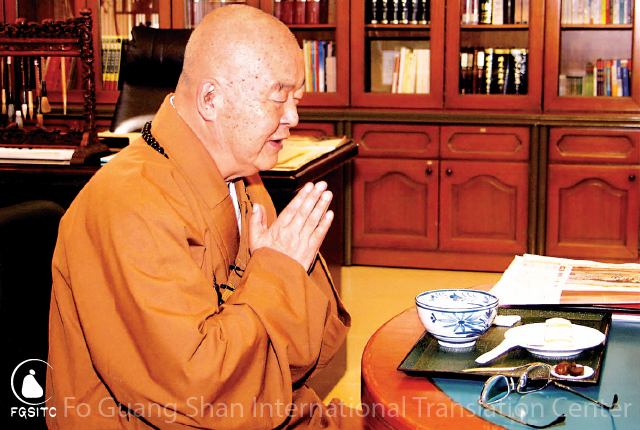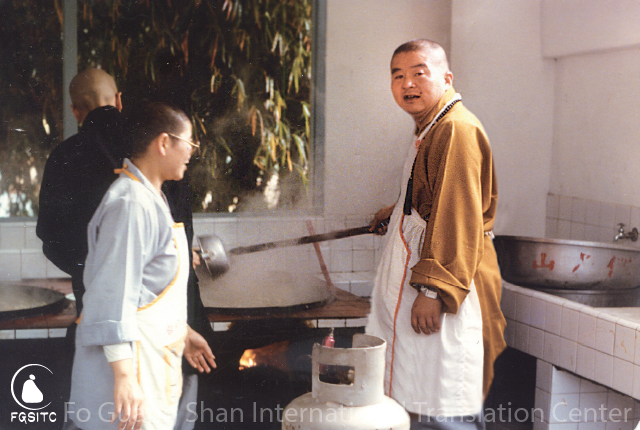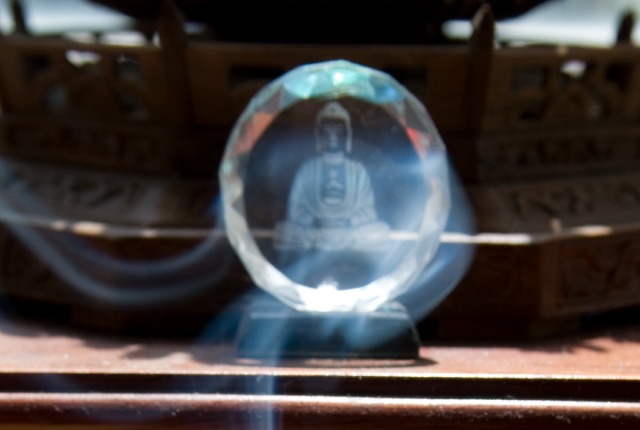Why should people create Buddha images? Did the Buddha really want everyone to make images of him and worship his body?
In truth, the purpose of creating the Buddha images is not to create symbols for worship. Buddha images are reminders that “the mind is the Buddha,” and that everyone has Buddha nature. Buddha images also remind us to frequently recollect the virtues of the Buddha to manifest our own Buddha nature.
In our practice, we pay homage to sacred images of the Buddha. This strengthens our faith and helps us persevere in our practice.
Venerating the kind and compassionate countenance of the Buddha can put an end to greed, anger, and ignorance in the mind.
It can also help us to correct our behavior and maintain propriety.
There is the saying, “Sincere faith can break open even hard stone.”
When we venerate sacred images, naturally we feel something in our hearts. Some people mistakenly think that Buddhists worship idols. In fact, no one worships idols less than Buddhists. Such can be seen in the famous gongan “Danxia sets the Buddha aflame.”
Most people benefit from symbols. Without an image or symbol to venerate, how will most people find a worthy figure to model themselves after? Buddha images are a means by which we can connect with the Buddha’s mind. They can help us realize our own Buddha nature. By frequently looking upon and venerating Buddha images, the mind becomes free of illusory thoughts. Amid formlessness, our temperament changes. After that change, we will develop an elegant, proper appearance as well.
In the Sumati Sutra, the Buddha uses verses to reiterate and summarize his teachings. In this passage, the verse can be glossed to read: Anger ruins virtuous roots; we must not allow them to grow. Images of the Buddha are made with a kind and compassionate heart. Entrust one’s body and mind to great kindness and compassion. Love the Dharma. Protect the Dharma. Create Buddha images to be beheld by future generations, so that others can venerate them. Then, one will obtain an elegant, proper appearance, which all sentient beings will delight in seeing.
From Ten Paths to Happiness, written by Venerable Master Hsing Yun.
Image from Pixabay.













